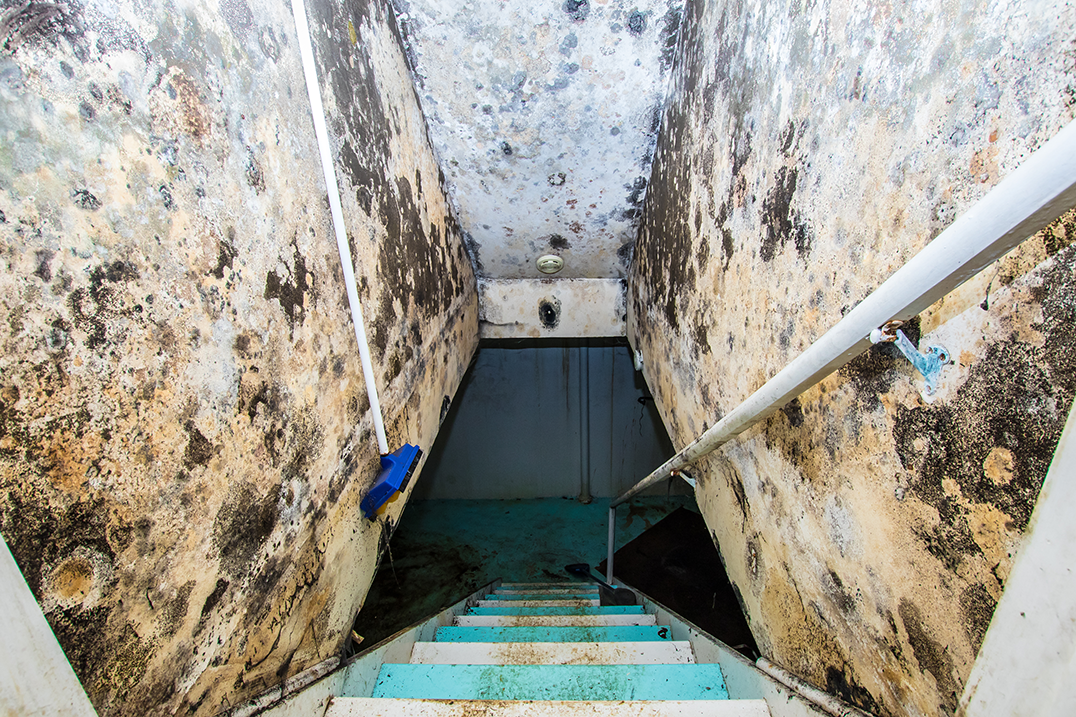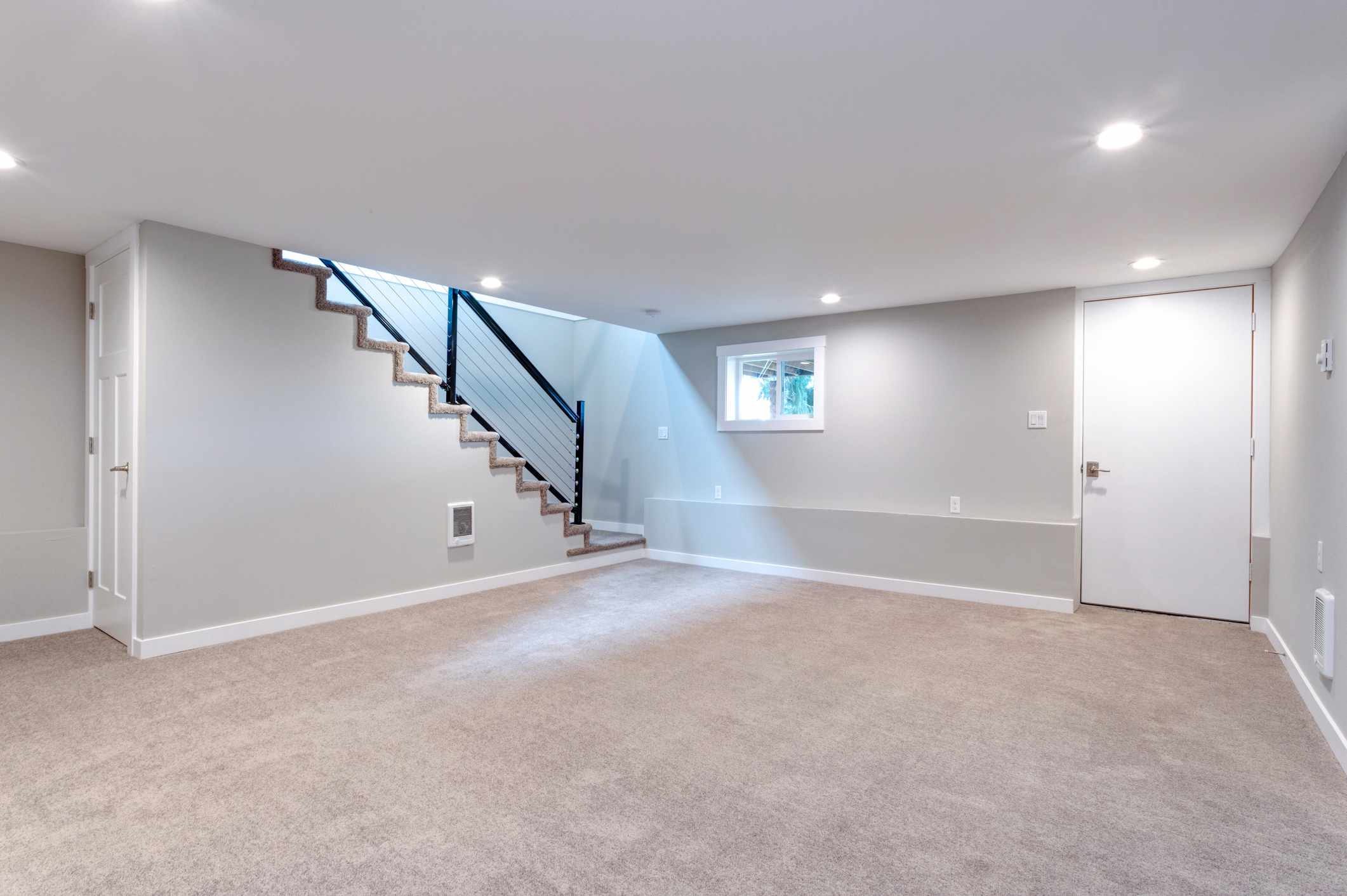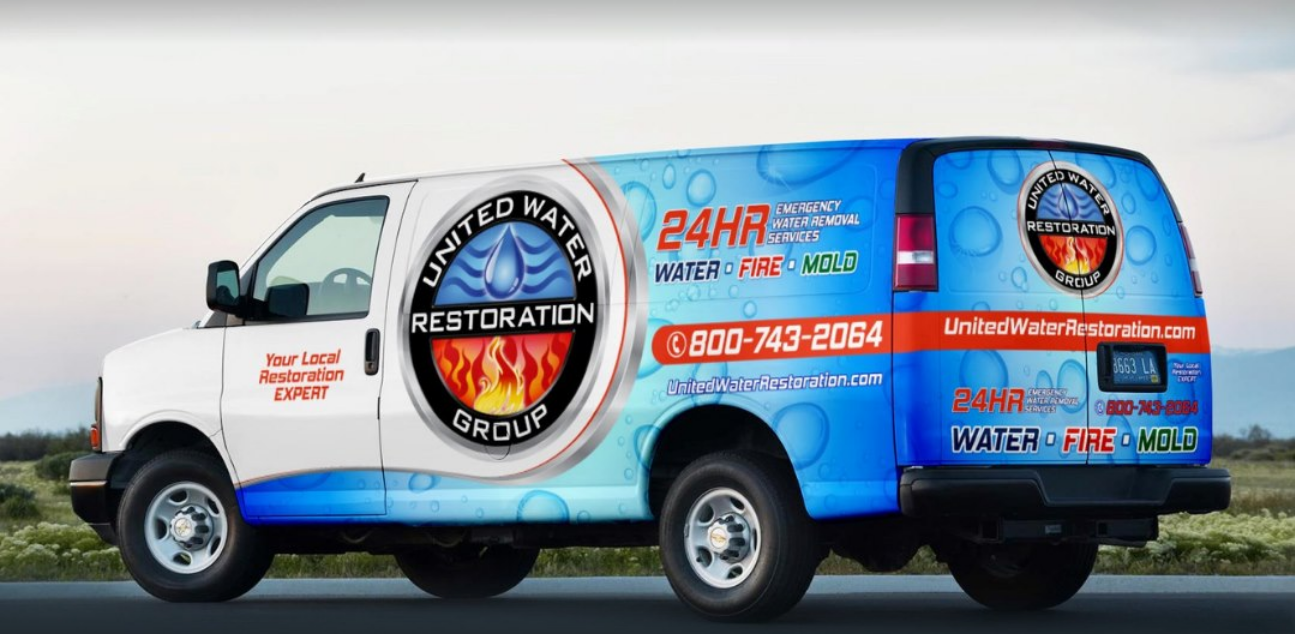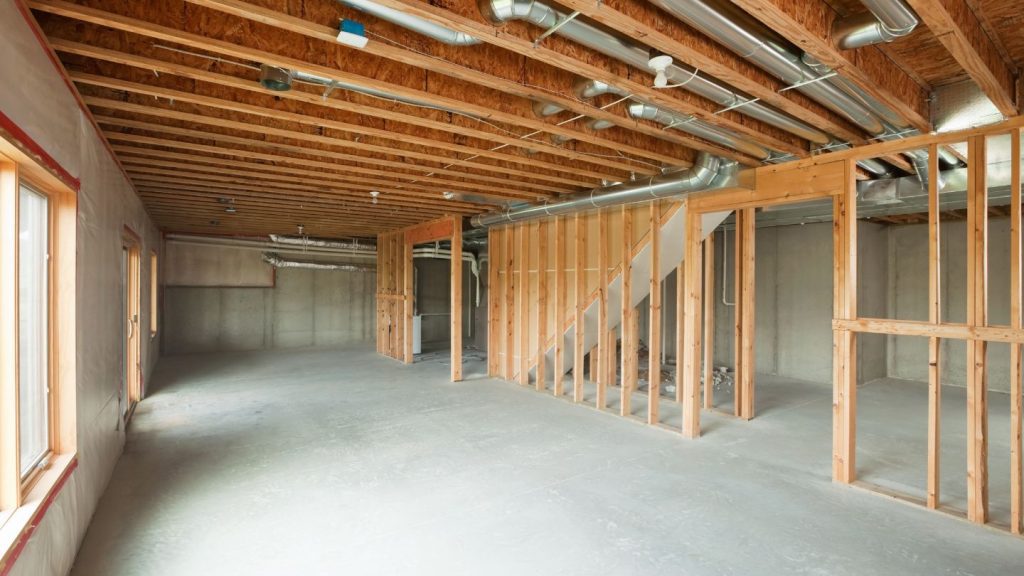Discovering mold in your basement can be unsettling, not just because of its unsightly appearance but also due to the potential health risks and damage to your home. Basements, with their often damp and poorly ventilated environments, are prime locations for mold growth.
Understanding the causes, recognizing the risks, and knowing how to effectively remediate and prevent mold are crucial steps in maintaining a healthy, safe home. This comprehensive guide will walk you through everything you need to know about basement mold.
Understanding the Causes of Basement Mold
Mold growth in basements is a common issue that homeowners face, largely due to the unique environmental conditions that basements often present. The root cause of mold is moisture, but understanding the various ways moisture can accumulate in your basement is key to preventing mold. Here are the primary sources of moisture that can lead to mold growth in basements:
Leaks and Flooding
- External Leaks: Water can enter the basement through cracks in the foundation or gaps around windows and doors. Even small leaks can introduce significant moisture over time, creating an ideal environment for mold.
- Foundation Cracks: Over time, a home’s foundation can develop cracks due to settling, shifting, or natural wear and tear. These cracks allow groundwater to seep into the basement, especially during heavy rains or snow melts.
- Basement Flooding: Whether from heavy rainfall, snowmelt, or a malfunctioning sump pump, flooding introduces a large amount of water into the basement. If not promptly and thoroughly dried, this can lead to widespread mold growth.
Condensation
- High Humidity Levels: Basements are naturally cooler than the rest of the house, which can lead to higher relative humidity levels. When warm, moist air from outside or upstairs comes into contact with the cooler basement surfaces, it can condense into water droplets.
- Cold Surfaces: Cold water pipes, concrete floors, and walls are common sites for condensation. This moisture can accumulate over time, dampening surfaces and promoting mold growth.
- Activities that Increase Humidity: Everyday activities like drying clothes indoors or using a humidifier can significantly increase humidity levels in your basement, contributing to condensation and mold.
Poor Ventilation
- Lack of Air Circulation: Basements often suffer from inadequate ventilation, which can trap moist air and prevent it from circulating out of the space. This stagnant, humid air fosters mold growth on surfaces and materials.
- Inefficient HVAC Systems: Heating, ventilation, and air conditioning (HVAC) systems that are not properly designed, maintained, or operated can contribute to poor air quality and moisture problems in basements.
- Sealed Spaces: Modern homes are built to be energy-efficient, which sometimes means they are tightly sealed with little natural airflow. Without adequate ventilation, moisture cannot escape the basement, creating a damp environment conducive to mold.
Addressing the Causes
Understanding these common sources of moisture is the first step in preventing mold growth in your basement. Regular inspections for leaks and cracks, monitoring humidity levels, ensuring proper ventilation, and promptly addressing any signs of water damage or condensation can help keep your basement dry and mold-free. For persistent moisture issues, professional waterproofing or mold remediation services may be necessary to identify and solve the underlying problems effectively.
The Risks of Basement Mold
Mold growth in your basement extends beyond an unsightly nuisance; it harbors significant health and structural risks that can impact the entire household. Understanding these risks is crucial for recognizing the urgency of mold remediation.
Health Risks
Mold produces spores that, when inhaled or come into contact with skin, can trigger a range of health issues:
- Respiratory Problems: Individuals exposed to mold may experience coughing, wheezing, and difficulty breathing. Those with asthma or chronic respiratory conditions may notice a worsening of their symptoms, including more frequent and severe asthma attacks.
- Skin Irritation: Direct contact with mold can cause dermatitis, which includes redness, itching, and rash. For people with sensitive skin, these reactions can be particularly severe.
- Allergic Reactions: Mold exposure can provoke allergic responses, such as sneezing, runny nose, red eyes, and skin rash. In more severe cases, it can lead to serious allergic reactions that require medical attention.
- Compromised Immune System: For individuals with weakened immune systems, mold exposure can be especially dangerous, potentially leading to more severe health complications.
Structural Damage
Beyond health concerns, mold poses a threat to the structural integrity of your home. Mold can degrade various building materials, including wood framing, drywall, and carpeting. Over time, this degradation can lead to significant damage, necessitating costly repairs. Mold can also affect the value of your property, making it difficult to sell or rent without first addressing the mold issue.
Is It Safe to Be in a Basement with Mold?
The presence of mold in a basement raises valid safety concerns, particularly for individuals with health vulnerabilities. While brief exposure to mold may not cause immediate health problems for everyone, long-term or repeated exposure can lead to the health issues outlined above. For those with pre-existing health conditions, such as respiratory ailments or immune system disorders, the risks are even greater.
Ensuring Safety
Given these risks, it’s clear that a mold-infested basement is not a safe environment. Addressing mold issues promptly is essential to restoring safety. This involves not only removing the mold but also correcting the underlying moisture problems to prevent future growth. Until these steps are taken, it’s advisable to limit time spent in the basement, especially for individuals at higher risk of mold-related health issues.
For households dealing with basement mold, professional assessment and remediation offer the most effective means to ensure the space is safe for all occupants. By tackling both the mold and its moisture source, you can protect your health, preserve the structural integrity of your home, and ensure your basement is a safe, usable space.

Basement Mold Remediation and Prevention Tips
How Do I Get Rid of Mold in My Basement?
Identify and Fix Moisture Sources
The cornerstone of any effective mold remediation strategy is tackling the moisture problem at its source. This process can be complex, as it requires a thorough inspection to identify all potential moisture sources, which might include leaks from pipes, seepage through foundation walls, or even humidity from the air. Once identified, these issues must be addressed through repairs or improvements, such as waterproofing measures, to create a drier basement environment that discourages mold growth.
Dry Out the Basement
Removing existing moisture from your basement is crucial in the fight against mold. This often involves the use of dehumidifiers to lower humidity levels and fans to circulate air and expedite the drying process. In some cases, especially after flooding, more intensive drying methods may be needed. The goal is to achieve a consistently dry environment that prevents mold spores from finding the moisture they need to thrive.
Clean or Remove Mold-Infested Materials
Dealing with mold-infested materials appropriately is a critical step in remediation. Non-porous surfaces can sometimes be cleaned with solutions designed to kill mold. However, porous materials, like carpet or insulation that have mold growth, often need to be removed and replaced because mold can infiltrate deep within, making it impossible to eliminate completely. This step helps to ensure that mold is not only removed from the surface but also that hidden mold growth is addressed.

Will a Dehumidifier Help with Mold in a Basement?
Utilizing a dehumidifier in your basement is a proactive step towards mold prevention, offering a significant defense against the moisture that mold spores thrive on. By effectively maintaining the humidity level below 60%, a dehumidifier can indeed make your basement environment less hospitable to mold growth. This tool plays a crucial role in the broader strategy of moisture control, acting as a vital component in ensuring a dry basement and providing a robust layer of protection against mold.
The Importance of Expertise in Drying Processes
While the operation of a dehumidifier might seem straightforward, the complete drying out of basement space to prevent mold growth involves a deeper understanding of drying processes and procedures. It’s not merely about setting up a dehumidifier; it requires comprehensive knowledge of how to monitor humidity and moisture levels accurately, assess the extent of any water damage, and understand the dynamics of airflow within the space.
Homeowners might not be equipped with the necessary tools or the expertise to gauge the effectiveness of the drying process properly. Without this knowledge, there’s a risk that moisture may persist in less visible areas, providing a breeding ground for mold despite the use of a dehumidifier.
The Risks of DIY Moisture Control
Attempting to tackle basement moisture and mold issues without professional training can lead to incomplete remediation, potentially exacerbating the problem. Homeowners are generally not trained to monitor humidity levels accurately, assess structural damage, or know the appropriate tools and chemicals required for effective mold remediation. This lack of expertise can result in overlooked areas of moisture, incorrect use of dehumidifying equipment, or improper application of mold-killing solutions, all of which can allow mold to continue growing unseen.
Professional Intervention for Comprehensive Mold Remediation
Given these complexities, it’s advisable for homeowners to seek professional assistance for mold issues in the basement. Mold remediation experts are equipped with the knowledge and tools to ensure that the space is thoroughly dried out and that all sources of moisture are identified and addressed. Professionals can also assess the extent of mold growth and damage, implementing targeted strategies to remove mold safely and prevent its return. This comprehensive approach ensures that the basement is not only dry but also that the environment is safe and healthy for occupants.
Incorporating a dehumidifier into your basement’s mold prevention strategy is undoubtedly beneficial, but it’s most effective when part of a broader, professionally guided moisture control and mold remediation plan. This ensures that all aspects of mold prevention are covered, from accurately monitoring environmental conditions to addressing any underlying issues that contribute to moisture buildup.
Professional Basement Mold Remediation Services
When basement mold exceeds the scope of DIY efforts or if the mold returns despite initial remediation attempts, it’s time to call in the professionals. Professional mold remediation services offer a comprehensive approach that goes beyond surface treatment, addressing both the mold and its moisture sources in a way that ensures long-term resolution.
The Comprehensive Approach of Professionals
Experts in mold remediation, like those at United Water Restoration Group, begin with a detailed assessment to identify all mold growth and its underlying causes. They then use specialized equipment and techniques to safely remove mold from affected areas, including hard-to-reach spaces and deep within building materials. Following mold removal, professionals will also address the moisture issues that led to mold growth, providing solutions to prevent its recurrence. This might involve installing better ventilation systems, waterproofing, or making structural repairs. The goal is to restore the basement to a safe, mold-free condition while implementing strategies to keep it dry and mold-resistant in the future.

Mold in Your Basement? Call Our Mold Remediation Experts
Mold in your basement is a serious concern that requires prompt attention. By understanding the causes and risks associated with mold growth and following effective remediation and prevention strategies, you can protect your home and health. If you’re facing a mold challenge in your basement, don’t hesitate to seek professional assistance. Visit United Water Restoration Group for basement mold remediation services and ensure your basement is safe and healthy for everyone.





